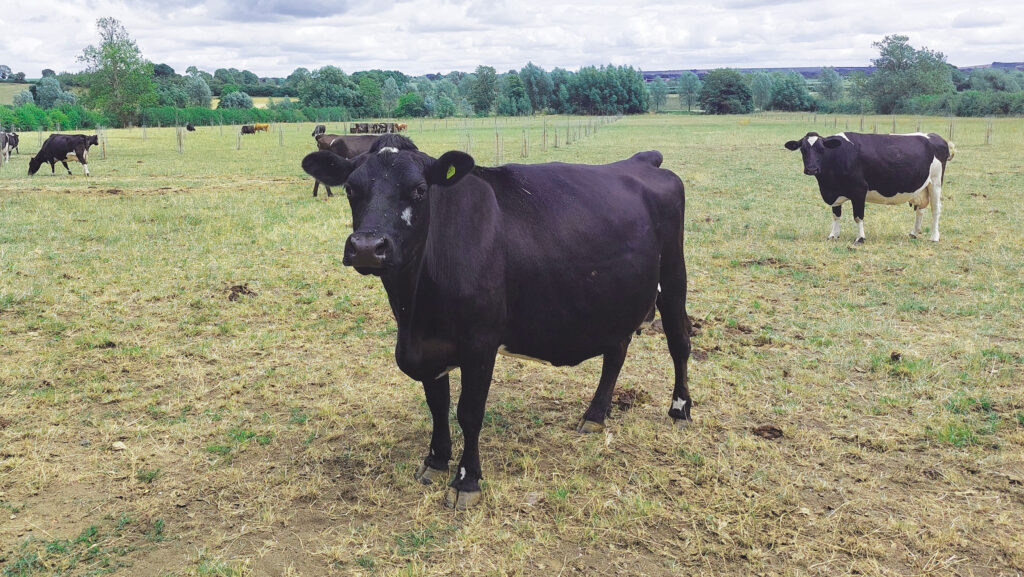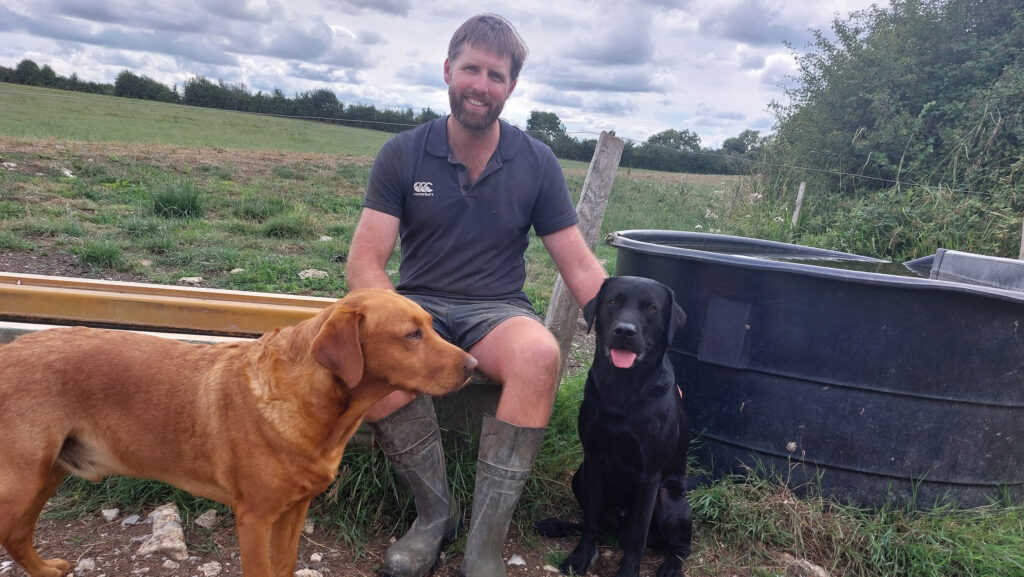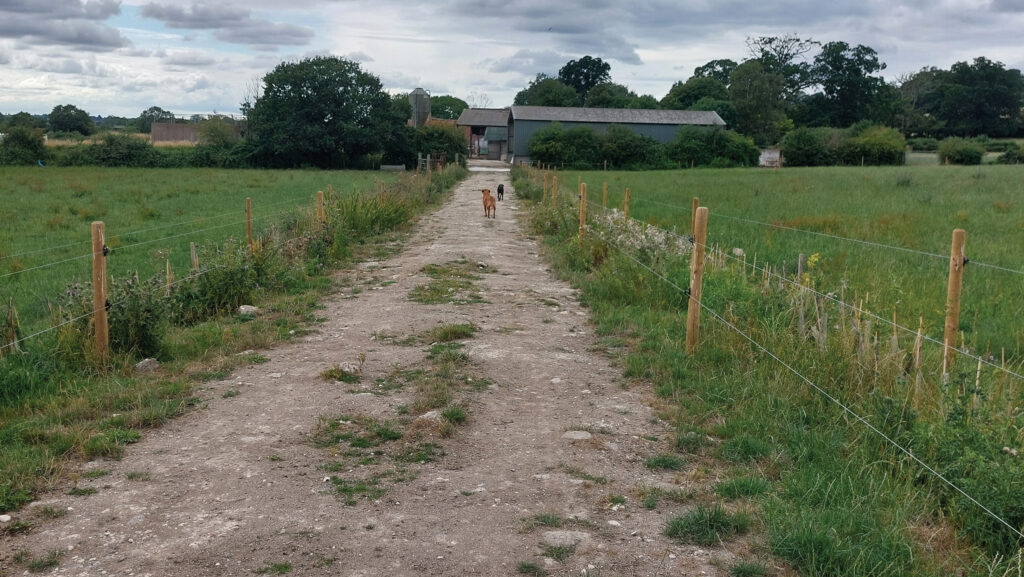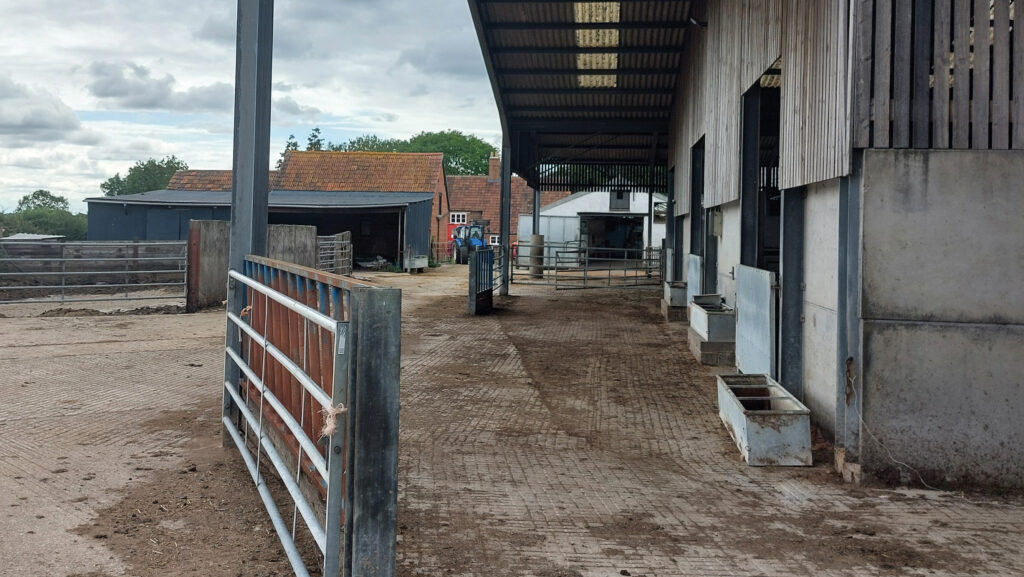How a dairy business course set new entrant up for first herd
 © MAG/Shirley Macmillan
© MAG/Shirley Macmillan A business course covering the essentials of running a dairy farm, from milk markets, budgeting and people skills, to banking and accounting, has helped a new entrant secure his first farm.
Luke Williamson attended RABDF’s Entrepreneurs in Dairying course in 2023.
In May 2024, he and his wife, Danielle, moved to Wiltshire County Council’s Knightsmead Farm near Melksham, on a 10-year tenancy.
See also: How to create a resilient dairy business
Now, at 38 years of age, Luke is farming 61ha (150 acres) running a simple rotational grazing and self-feed silage system with 113 autumn block-calving cows.
Tractor work (muckspreading, silage and reseeding) is contracted out, there is a relief milker, and Luke is currently seeking an apprentice.
As someone from a non-farming background, Luke says he caught the bug from a weekend job on a dairy farm while still at school.
This was followed by studies at Plumpton College, various farm jobs and a spell in New Zealand milking cows and working for a contractor.
When he landed at Dan Burdett’s organic dairy herd in Sussex, this allowed him to work up from herdsman to herd manager.
He eventually became farm manager of a second unit that Dan had added to his business.
Farm facts
Knightsmead Farm near Melksham, Wiltshire

Luke Williamson with dogs Oakley and Todd © MAG/Shirley Macmillan
- 113 Jerseys and Friesian cross Jerseys
- Autumn block-calving starting 24 August
- 80% calved in the first seven weeks
- All bred to Hereford this year
- Average yield 5,700 litres at 5.1% fat and 4.7% protein
- 47ha main farm block plus 14ha off-lying land; 18ha maize grown on contract
- Self-feed silage
Driving ambition
After four years, Luke was keen to go further.
“I wanted to progress to ownership, a tenancy or contract farming, and this business course was part of the next step, so it was really good timing – we were looking at three options at the time.
“I got a huge amount from it, and I have used the information, not sat on it; I was ready,” he says.
A mix of online and in-person tuition offered the benefit of discussion with the other attendees (some of whom he is still in touch with), plus visits to successful dairy farm businesses.
And Luke found the topics were very relevant for his stage in life, starting with an introduction to the markets.
“You don’t look at this when you are employed, as it doesn’t directly affect you, so I learned how the milk price is calculated.
“There was an accountant who spoke about taxes and VAT, and we had [tenant dairy farmer] David Homer speaking to us about tenancy agreements, which really helped, as we were putting our tender together.”
Having had experience of managing a team of up to six staff, Luke says the people skills sections of the course (“fantastic”) were a good reminder – even though he is not currently employing full-time staff.
“People management is always in the back of your mind. We have students and contractors on site for our tractor work, and they are all different personalities, so you can definitely use that knowledge,” he says.
Farm budgets
Perhaps the most useful section for someone wanting to run their own business was in-depth budgeting and accounting training with consultant Tony Evans.
“I’d never done this before as I haven’t previously had to use it.
“We’d had some lectures at college, but that was more than 20 years ago, and it wasn’t in any detail.
“This was enjoyable and I went back and did the budgets for the farm I was working on and put it into practice.
“It was also massively useful for our tenancy applications – we couldn’t have done them without it.”
As a result of the course, Luke says that he and Danielle approached the accountant tutor to cast his eye over their figures and help with the tenancy application. He is now their farm accountant.
“We also moved banks off the back of it – we set up through HSBC as it is more agriculturally focused compared with where we were banking previously.
“And David Homer mentored us through our application via the Let’s Farm Foundation.”
Luke has put together his own farm budget this year, feeling fully confident in it and says this is important.
“You need to do it yourself or you can’t keep track.
“I sit down quarterly now and run through our actuals versus budget; you can react to it quicker than doing it on an annual basis.”
On reflection, after almost 18 months of trading as a milk producer, Luke says he could do to delve into the legal side of contracts, whether for tenancies or joint venture opportunities.
He would also welcome more learning on budgeting.
However, he is clear that the course is ideal for anyone who wants to take their next step into herd or farm management: “Do it, go for it,” he advises.
First-year achievements
In his first year of dairy farming, Luke has set up grazing paddocks and self-feed silage, planted hedges, and is now lengthening the parlour from a 12/12 to a 12/24 to speed up milking.

© MAG/Shirley Macmillan
Muck is being composted, ready to spread on silage ground (and any reseeds that are ploughed) next year.
Trees have been planted in wet fields beside the river to supply shade and shelter, as well as help drainage.
“We had grant funding and planted willow for browsing, alder to fix nitrogen, walnut as fly repellent, with apples and pears for wildlife,” he says.
“The plan is to get a bit more milk this winter: push for 6,500 litres, as we have better-quality silage and have maize coming in.
“We fed 1.7t of concentrates a cow last winter due to rubbish silage – the plan is to be closer to 1.4t but with more milk.”
Next steps
However, getting his own dairy farm is not the culmination of Luke’s farming career.
He is aware that council farms are no longer a guaranteed stepping stone to a bigger business, or farm ownership.
And with just 115 cubicles – albeit with a good set of clamps and muck storage – and limited land, his ability to develop herd size is restricted.

© MAG/Shirley Macmillan
“We’ve invested this year in the parlour and cows.
“Our immediate thing is to get a 30% comparable farm profit. In the next few years, we want to store some cash.
“The scope for how far we can grow this farm holds us back.
“But with eyes and ears to the ground, and building up cash, we can look at the next step, whether that is a second farm near here, or we take our cows to another, bigger farm.”
RABDF Entrepreneurs in Dairying
- A business training programme for aspiring dairy producers organised by the Royal Association of British Dairy Farmers in collaboration with The Andersons Centre, AHDB Dairy and the NFU
- The course provides commercial experience, people development, financial skills, business management, taxation and business structures including partnerships, joint venture and tenancies
- Applications for the 2025 programme, which starts on 24 September, are open to anyone over 20 years old
- Cost is £580 +VAT
- For more information visit the RABDF website
